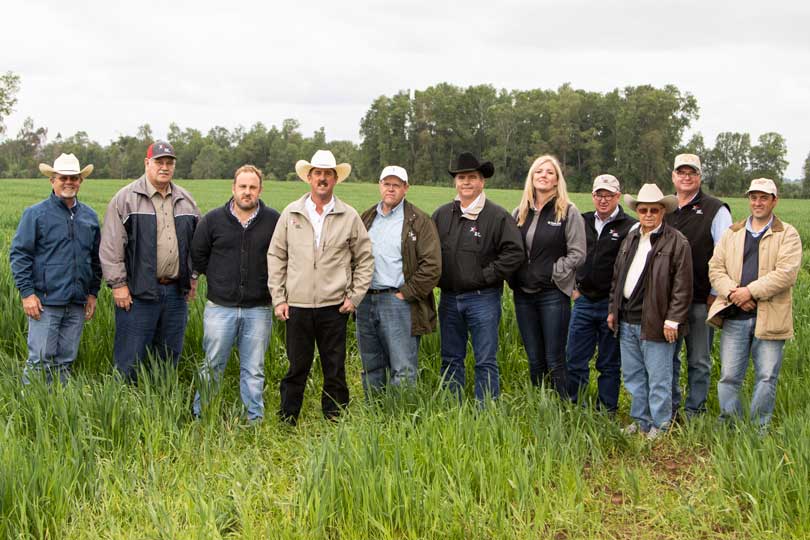By Jennifer Dorsett
Field Editor
More than 5,000 miles away, resilience and dedication to innovative agriculture flourishes in Chile where Texas Farm Bureau (TFB) leaders visited in November.
Despite many challenges, agricultural enterprises excel in the South American country.
That’s what the Texas leaders learned as part of TFB’s Global Agricultural Education Tour—a way for Texas growers to see agriculture around the world and across the nation.
“They’re trying to be as self-sufficient in their agricultural production as they can,” TFB President Russell Boening said. “The trip has allowed us to interact with other producers and see what issues they’re facing. Oftentimes, we share similar issues, and countries like Chile look to the U.S. for some leadership on these issues.”
Giving life to agriculture
Geography and climate play a key role in Chilean agriculture. But the South American farmers also rely heavily on exports to bolster their economy and demand for their products.
Some of that trade is with the U.S.
The U.S.-Chile Free Trade Agreement was signed in 2004, and the last tariff reduction occurred in 2015, allowing duty-free trade between the two countries.
Since 2004, U.S. agricultural exports to Chile have increased from $149 million to $987 million.
In 2017, Chile exported $2.9 billion of agricultural goods to the U.S. The country is the tenth-largest supplier of agricultural imports to the U.S.
Some of those items include fresh fruit valued at $1.7 billion, wine and beer at $284 million, processed fruit and vegetables at $258 million and planting seeds at $163 million.
“We’re a trade partner with Chile, and it’s important to see how they see Texas, how they see the United States,” Jessica Richmond, TFB District 7 state director, said. “It’s important to see what they’re doing. There’s things we can learn from them and that they can learn for us.”
Visits to seed production and research facilities, as well as several farms, gave the Texas farmers that look into Chilean agriculture.
At an alfalfa seed-production farm, TFB District 4 State Director Ben Wible was impressed by the land’s productivity. The climate of South Central Chile is different than Wible’s farm in North Texas. That part of Chile receives anywhere from 80-100 inches of rainfall annually, compared to 42 inches of annual rainfall for Wible.
“At home, we might make a third the amount of alfalfa production that they’re making here,” Wible said. “He’s making 20 or 30 tons per acre during the season, but he said he can cut it four or five times.”
Chile’s seasons are countercyclical to the U.S., which boosts its trade opportunities with American consumers during the winter months. This puts Chile’s produce in high demand.
Copper is the top commodity that Chile exports, followed by edible fruits and nuts, fish and seafood and wood and wood products.
U.S. ag influence in Chile
Chilean culture is strong, but American products have a growing market in South America.
The group visited a Liders store, which is owned by Walmart. It is the most popular grocery store chain in Chile, and the grocery store shelves contained Texas and U.S. products.
“We saw our U.S. beef in the grocery stores, on the counter,” Pat McDowell, TFB District 1 state director, said. “They were different cuts than what we have at home, but that’s what makes our cattle valuable. Some of these cuts that we normally don’t eat in the states are exported here and are actually sought after by the Chilean people. It’s a win-win for everybody, and that’s our checkoff dollars at work.”
McDowell, who raises cattle and is TFB’s representative for the U.S. Meat Export Federation, noted the state and national beef checkoff funds are used to help grow beef demand in the U.S. and globally. Checkoff dollars fund promotion, marketing, advertising, communication and research programs in an effort to add value to Texas and U.S. beef.
Urban sprawl, profitability challenge Chilean ag
Chile is changing and growing, especially near the country’s capital city, Santiago. Urban expansion means a loss of land for Chilean farmers and ranchers.
It’s an issue the Texas group knows all too well. And lack of farm profitability has Chilean farmers loo

